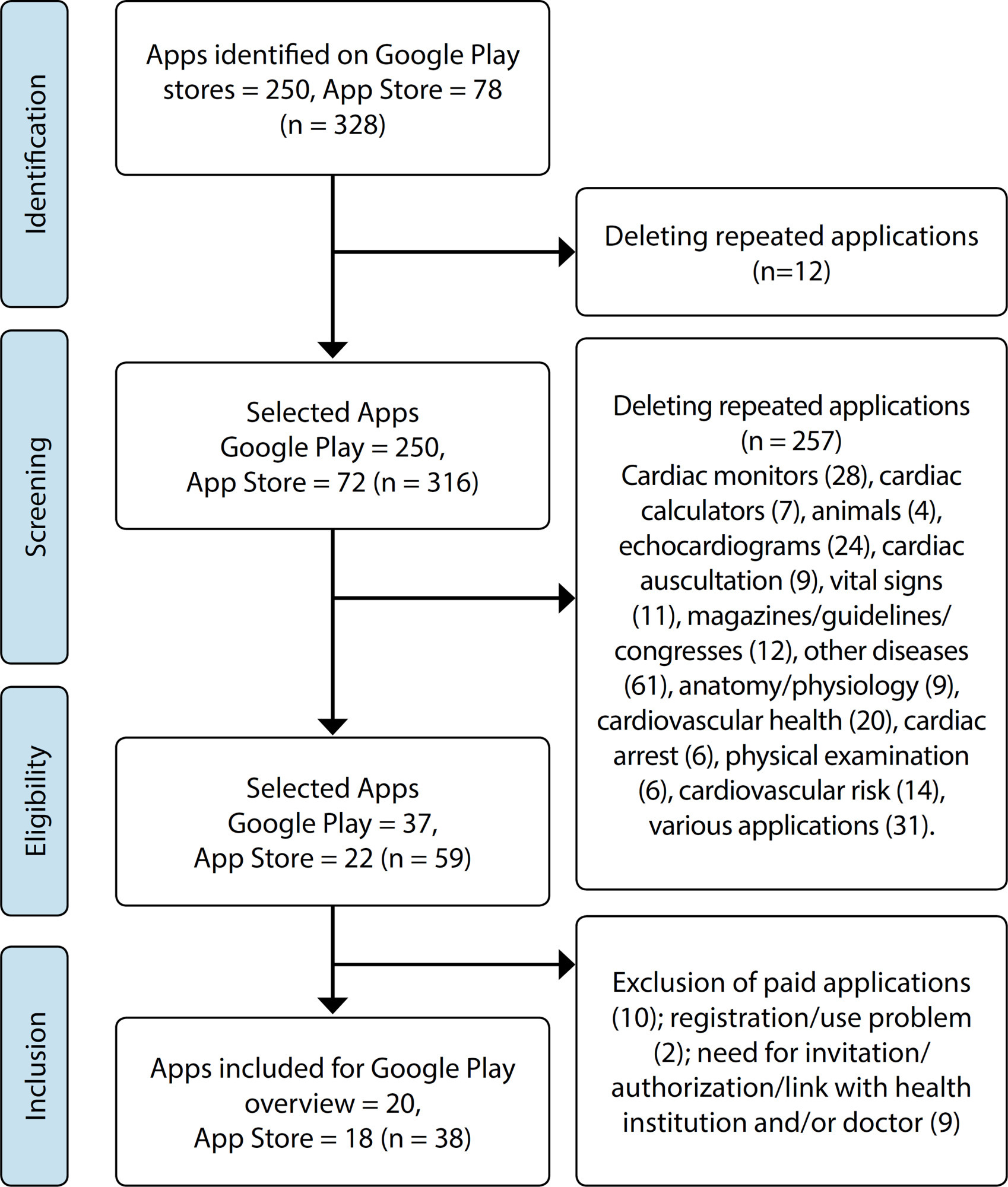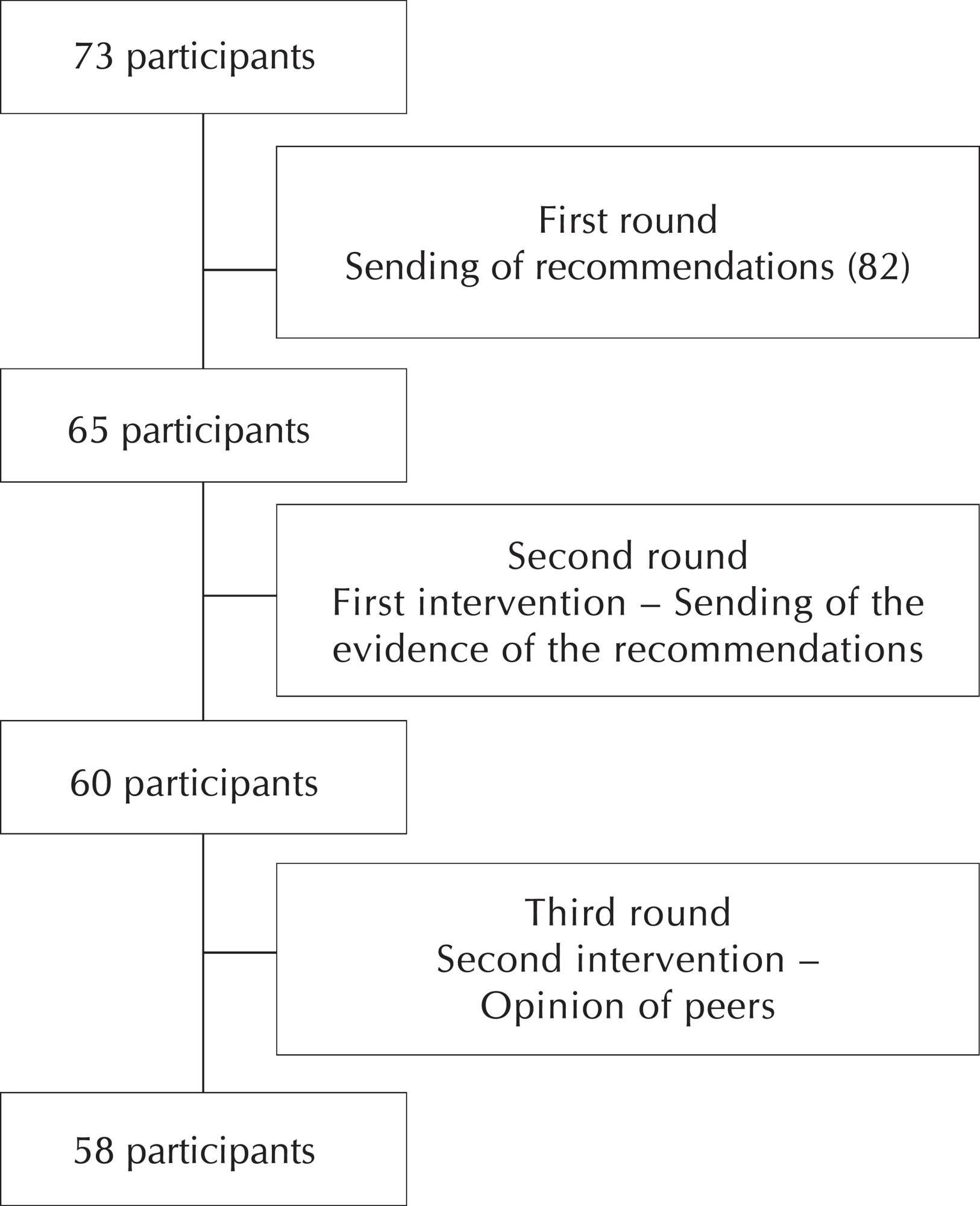-
Benchmarking of mobile apps on heart failure
Revista Brasileira de Enfermagem. 2022;75(1):e20201093
10-01-2022
Abstract
Benchmarking of mobile apps on heart failure
Revista Brasileira de Enfermagem. 2022;75(1):e20201093
10-01-2022DOI 10.1590/0034-7167-2020-1093
Views0INTRODUCTION Heart failure (HF) is an emerging global threat, with a current prevalence of 64.34 million cases on the planet (8.52 per 1,000 inhabitants), representing 9.91 million years lost due to disability and spending of US$346.17 billion(), with a prospect of an increase despite therapeutic advances. These data alert to the prioritization of preventive actions […]See more
-
RESEARCH
Diffusion of the e-SUS Primary Care innovation in Family Health Teams
Revista Brasileira de Enfermagem. 2018;71(6):2945-2952
01-01-2018
Abstract
RESEARCHDiffusion of the e-SUS Primary Care innovation in Family Health Teams
Revista Brasileira de Enfermagem. 2018;71(6):2945-2952
01-01-2018DOI 10.1590/0034-7167-2018-0053
Views0ABSTRACT
Objective:
To analyze the diffusion of e-SUS Primary Care innovation in Family Health Teams.
Method:
A qualitative approach case study, based on Innovation Diffusion Theory and Technology Acceptance Model. We conducted 62 interviews and observation of professionals from Family Health Teams in six municipalities of Minas Gerais State, between March 2016 and January 2017. The data were treated through Categorical Thematic Content Analysis and, systematized, with Atlas.ti software .
Results:
It was verified that although the e-SUS Primary Care strategy is recognized as a technological innovation, situations predominate that weaken its acceptance as: incompatibilities with the work process; sudden deployment, poor training; work overload; resistance; and negative impacts on health care.
Conclusion:
The diffusion of the e-SUS Primary Care strategy as a technological innovation has presented potential situations of its rejection, conforming as challenges to be overcome.
Keywords:Diffusion of InnovationFamily Health StrategyHealth Information SystemsNursing InformaticsPrimary Health CareSee more -
RESEARCH
Use of the Diffusion of Innovation Model in venous ulcers by specialized professionals
Revista Brasileira de Enfermagem. 2017;70(3):610-617
01-01-2017
Abstract
RESEARCHUse of the Diffusion of Innovation Model in venous ulcers by specialized professionals
Revista Brasileira de Enfermagem. 2017;70(3):610-617
01-01-2017DOI 10.1590/0034-7167-2016-0235
Views0ABSTRACT
Objective:
To analyze the influence of the evidence and of the opinion of peers on the decisions of specialists regarding the agreement with recommendations for prevention and treatment of venous ulcer.
Methods:
This is a quasi-experimental study with two interventions: provision of studies with the evidence of the recommendations and provision of the opinion of peers, with sample of 73 specialized doctors and nurses. Delphi technique was used in the search for agreement, with three rounds.
Results:
The participants evaluated 82 recommendations organized into eight domains: evaluation of patient and wound; documentation of clinical findings; care with the wound and surrounding skin; indication of dressing; use of antibiotics; improvement of venous return and prevention of recurrence; referrals of patients; and professional training. The interventions resulted in statistically significant changes in four domains.
Conclusion:
The interventions were able to change the opinion of participants, leading them to agreement regarding the recommendations, regardless of the level of evidence.
Keywords:Delphi TechniqueDiffusion of InnovationHealth PersonnelPractice Guidelines as TopicVaricose UlcerSee more
-
RESEARCH
Learning Incubator: an instrument to foster entrepreneurship in Nursing
Revista Brasileira de Enfermagem. 2015;68(6):1103-1108
01-01-2015
Abstract
RESEARCHLearning Incubator: an instrument to foster entrepreneurship in Nursing
Revista Brasileira de Enfermagem. 2015;68(6):1103-1108
01-01-2015DOI 10.1590/0034-7167.2015680615i
Views0See moreABSTRACT
Objective:
this study aimed to know the contributions of the Learning Incubator to the process of lifelong education in health.
Method:
this is a qualitative field research whose data was collected from August to December 2014 by the focus group technique. The research had 34 employees of a Teaching Hospital in the central region of the state of Rio Grande do Sul that participated previously in the incubation process.
Results:
from the data encoded by content analysis, three themes were selected: Learning Incubator – welcoming and integrating space; An instigating instrument that enhances possibilities; Continuous and lifelong education strategy.
Conclusion:
the Learning Incubator is an important instrument to foster entrepreneurship in nursing and other health areas due to its capacity of rethinking mechanized practices, to the possibility of instigating new ways of being and acting, and to the ability of creating and developing new ideas based on individual and institutional needs.



